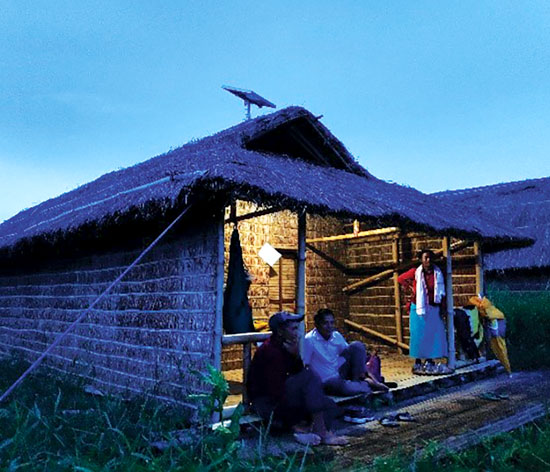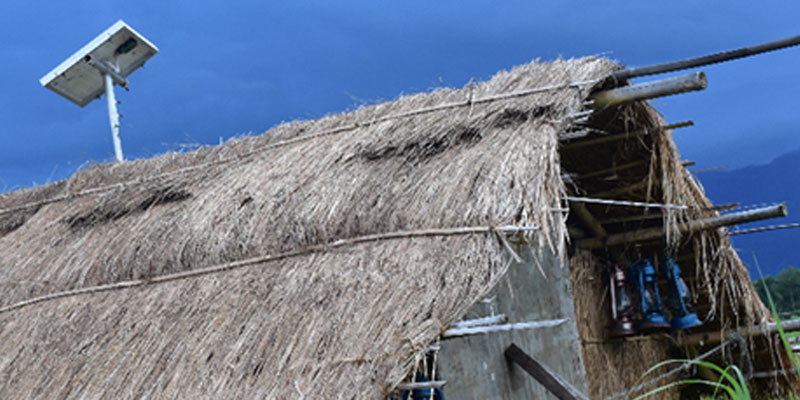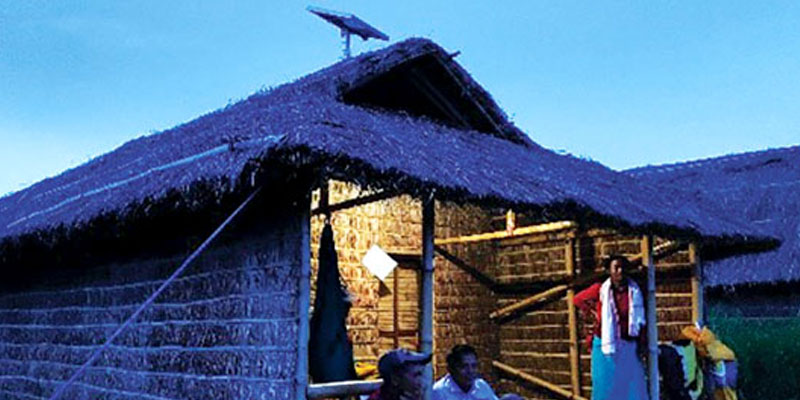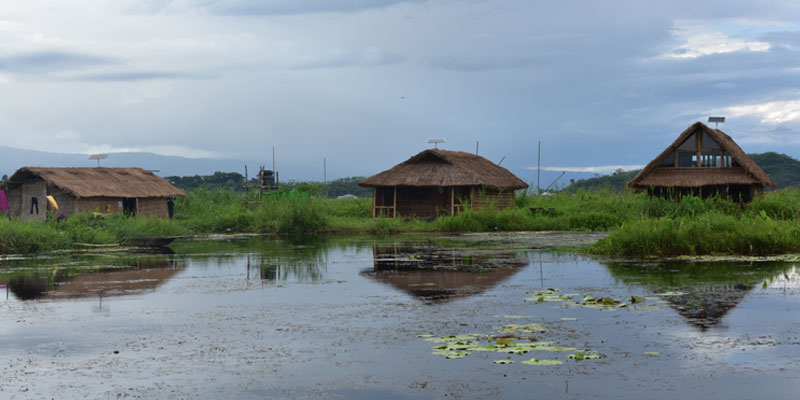
Loktak Lake is located in Moirang block, Bishnupur district, Manipur, and is home to the fishing community that lives in floating huts lacking basic amenities, such as electricity. Over time, the catch of fish has decreased, and sustainability of livelihoods is a big question mark. The local authorities obviously have bigger fish to attend to and could not be bothered with these small-time fisherfolk. To add salt to their wounds, and in the guise of conservation, the authorities laid down certain guidelines and restrictions, constraining livelihoods even further.
Sapam Ashok Singh – one of the hut owners was a worried soul. “Since generations, we have caught fish in this lake. The floating hut is our home. What will we do on land?” he wondered. His sentiments were echoed by the other members of the community too.
Necessity, they say, is the mother of invention. With their backs to the wall and their livelihoods in jeopardy, the fisherfolk started exploring alternate solutions. This gave birth to the idea of using the floating huts as a tourist eco-homestay with the pristine Loktak lake providing the perfect setting. Here too, there was a challenge. Sapam explains, “the local authorities do not allow the usage of diesel engines on our floating huts, due to pollution concerns. We also could not use kerosene or any candles since the huts are made of thatch and bamboo, and the risk of catching fire is quite high”.
Loktak lake was the perfect opportunity for the Trusts and their Associate Organisation Centre for Microfinance and Livelihood (CML), to intervene and salvage the livelihoods of the fisherfolk. In March 2018, the latter operationalised the initiative called ‘Ensuring Energy Security for communities living in remote areas of Manipur’, the main objective of which is to provide decentralized solar energy solutions to unserved communities not covered by the grid.
Under the initiative, CML facilitated the installation of solar home lighting systems for Sapam and two other families living on the lake. They, in turn, helped popularize the solution with other families.
Loktak lake is now a preferred eco-friendly tourist spot for the weary city folk who want to get away from the rat race and enjoy nature in the simple, but functional floating homestays. Simultaneously, it has ensured that the fisherfolk get to stay in their generations-old habitat and earn a sustainable income too.
This story has been taken from the Sir Ratan Tata Trust and Allied Trusts Annual Report 2019-20



